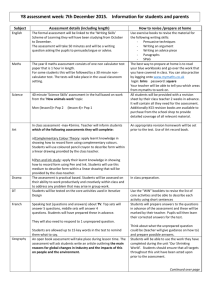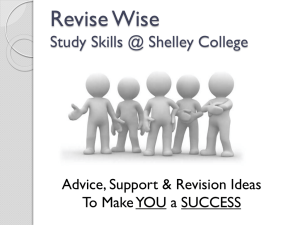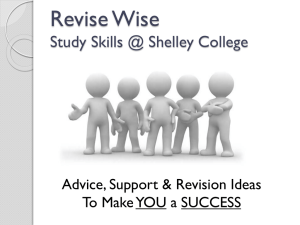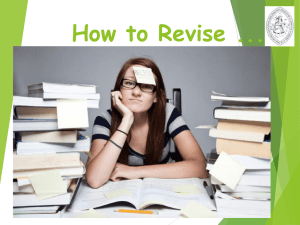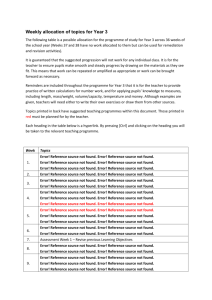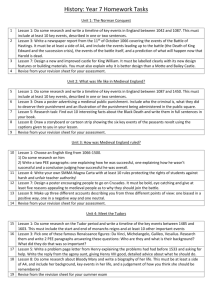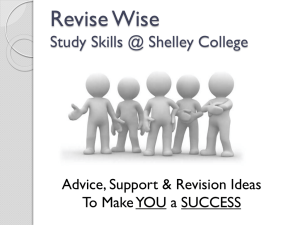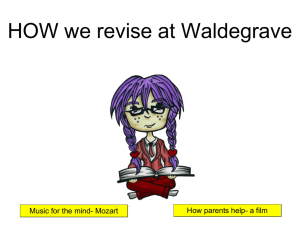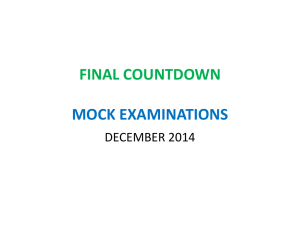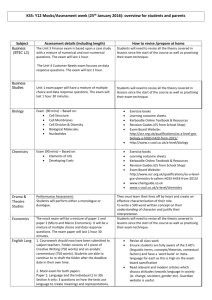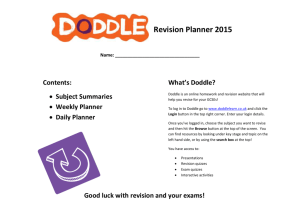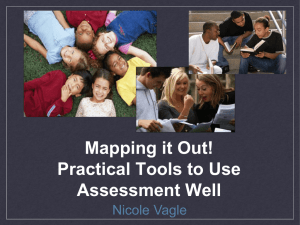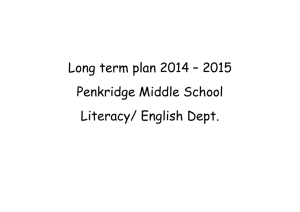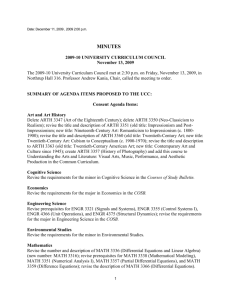EXAMS – Parents evening on GCSE revision
advertisement
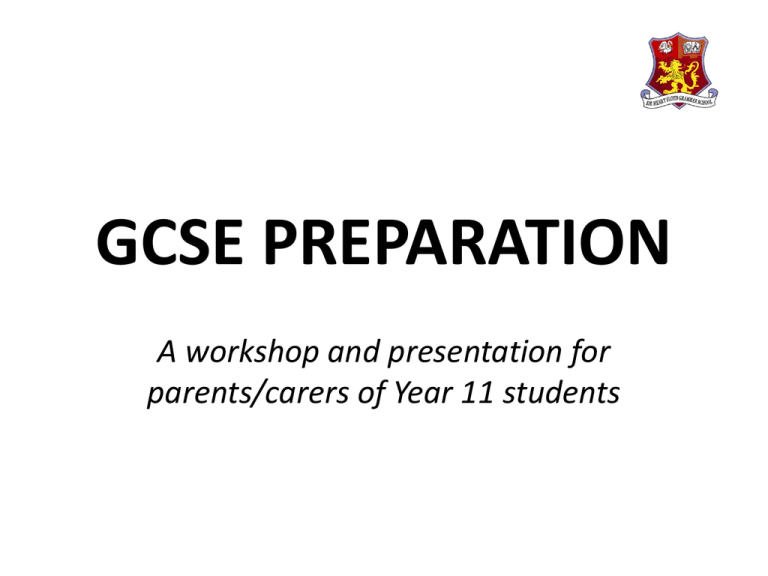
GCSE PREPARATION A workshop and presentation for parents/carers of Year 11 students The conversation……… • Why should you revise? • Where should you revise? • When should you revise? • How should you revise? • How often should you revise? What the students say: • Keep your nose out ‘coz it’s so annoying • Stop nagging • Leave us alone – if s/he left me alone I might actually do some revision • Keep the house quiet and siblings under control • Don’t force us to make a revision timetable • Money/biscuits to revise please! The count down to GCSEs • How many weeks to go? • Study leave? • Study rooms on exam days • Examination calendar • Examination board What the school is doing... • The PSHE+ programme / Learning Performance Workshop have already covered revision techniques and styles • All subjects will carry out revision sessions once the syllabus and coursework has been finished • Work is done on past papers and exam technique in subjects What the school is doing... • Subject teachers will make crystal clear, to students, what is exactly required in each subject • Gaining Grade A booklet • During study leave, teachers are often available to give advice. If a student has a problem during study leave, they should contact a teacher at school to arrange a good time to come in Learning Performance Techniques: How to Revise: • Highlighter pens for Key Words • Spider-diagrams and flow charts • Mnemonics • Suitable educational internet sites with animated diagrams e.g. Put your child in charge! • Give them choices • Allow them to work out strategies which best suit their preferred learning style • Talk through their plans with them to allow them to reflect on and modify them • Suggest and monitor group revision sessions They don’t do it the way we did! • • • • • • • • • • Where? How? Silence? i-pod? Sitting at a desk? Computer access? Use of internet? On their own? Clock? Lighting? Phone? Food? Current Workload • 2 – 2.5 hours per night at the moment. • 5 hours over the weekend • Increasing work at weekends as exams approach. Statement: “I don’t have any homework” Answer “Coursework/controlled assessment and Revision” The most effective revision time • The concentration span in minutes of a person is their age, plus or minus one. This means that the concentration span of a 16 year old is 15 to 17 minutes – bitesize chunks • Take a break, “All work and no play…” • Begin revising as early as possible, the more they do the easier it becomes. Optimum is 68 weeks How should they revise? If you just sit down to revise, without a definite finishing time, then your learning efficiency falls lower and lower, like this: How can they improve this? If they decide at the beginning how long they will work for, with a clock, then as the brain knows the end is coming, the graph rises towards the end How can you improve this even more? If you break up a 2-hour session, into shorter sessions, for example 17minutes, with a short planned break between each session, learning is more efficient. Compare the next 2 graphs: One solid session 4 shorter sessions The yellow area shows the improvement. The Curve of Forgetting! How often should they revise? Look at the graph below: It shows how much your brain can recall later. It rises for about 10 minutes …and then falls. However, if they quickly re-revise after 10 minutes, then it falls more slowly! This is good. Analyse the new graph: Even better, if you quickly re-revise again, after 1 day, then it falls even more slowly! Good ! Analyse the new graph: And even better still, if you quickly re-revise again, after 1 week, then it falls even more slowly! Great! Analyse the new graph: When to Revise? So the best intervals for ‘topping-up’, by reviewing or briefly re-revising are: 10 minutes 1 day 1 week …and then 1 month • START WITH THE HARDEST. When freshest tackle the subject that they find hardest. What you can do to help... • Plan around your child e.g. family activities • Cut back on some extra-curricular activities • If financially possible, suspend part-time jobs GET THE BALANCE RIGHT! What you can do to help... • Treats e.g. food, TV at lunch • Motivation – goals and ambitions • Short term/long term treats • Rewards for revision and not results Dealing with Stress • • • • • • • Healthy diet – proper meals especially breakfast Exercise Sleep Avoid high doses of caffeine Relaxation exercises Coping with ‘absolute terror/panic attacks’! Look forward with optimism On the exam days • The night before, make sure they have put everything they need in their school bag : like extra BLACK pens, pencils, transparent pencil-case, calculator and maths equipment. • If they have a mobile phone, remind them that anyone with any electronic device on or off found during an examination will be considered to have cheated • Make sure the alarm is set so they’re not rushing and have time to eat breakfast. • Say: “Don’t panic, don’t worry - just do your best.” Tell them to say it to themselves during an exam. • Arrive at least 10 mins early • Illness and late arrival ‘In the exam I just went blank!’ • Revision literally means ‘re-looking’ at information that’s already been learnt • How can a student improve their recall so they can apply what they have learnt? • ‘MEMORY HOOKS’… Reinforcement ‘We remember: 10% of what we hear, 20% of what we read, 50% of what we do, 75% of what we discuss and 90% of what we teach.’ …………….and finally! Count the days to the final exam ………………..because this time next year you will already have sat the January modules and about to embark on the summer AS modules………………. Good study habits now means less effort later! Any questions? Thank you for coming
